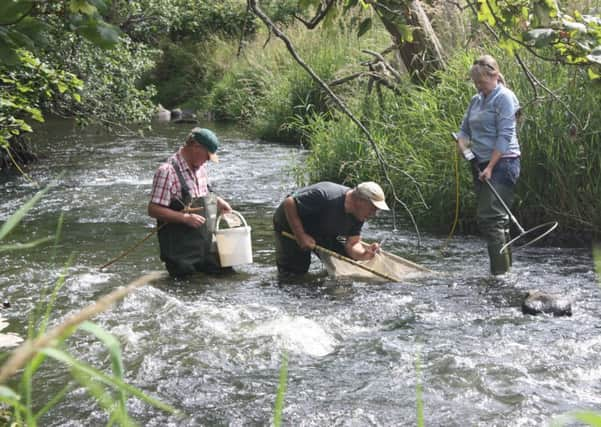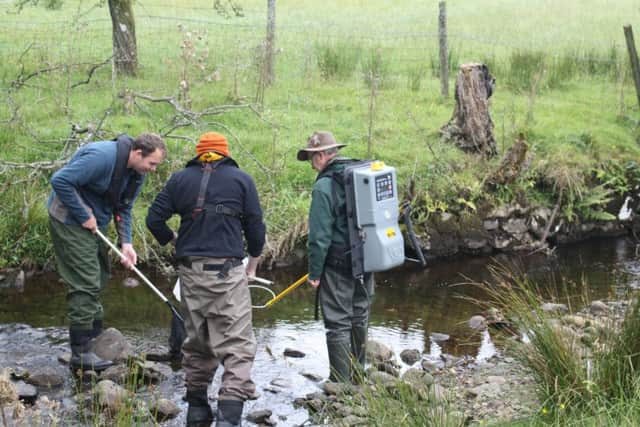The Linlithgow Anglers Club and lots of other groups have been working hard in and around the River Avon for decades


It all started in the ‘70s when Harry Millar drove to Edinburgh and had to cross the river in Linlithgow.
He said: “It seemed to change colour every time I drove over it. One day it was yellow, the next green, sometimes orange.
Advertisement
Hide AdAdvertisement
Hide Ad“I remember thinking how can people live with a river looking so horrible.”


Harry had no idea he would eventually move to the town and become president of the Linlithgow Angling Club; hooked by the beauty of the river.
In the ‘80s Harry joined the angling club and sat on the committee. A sub-team was set up to try and get fish into the river as at that time no life could survive in the water.
Harry said: “Westfield paper mill was pumping waste into one of the burns that eventually connects with the River Avon. This deoxygenated the river giving the small bugs fish eat no chance of surviving, meaning fish could not survive as there was nothing for them to eat.
Advertisement
Hide AdAdvertisement
Hide Ad“Also the water was that horrible the fish wouldn’t live anyway.”


Working with the paper mill a new filtration plant was built, dealing with the waste in a more environmentally friendly way.
This was the first step towards making the river life sustaining, but there was still plenty for the angling club to do.
The club began stocking brown trout in the river and a decade later the fish were breeding and surviving.
Advertisement
Hide AdAdvertisement
Hide AdLinking with other clubs in the area, the River Avon Federation was created and work now focused on making the 10 sewage treatment works along the river less dangerous.
Slamannan Angling Club placed 6oo tonnes of gravel and 60 tonnes of boulders in the river to help sustain insect life that fish eat.
Harry said: “This helps oxygenate the river as well.”
By the turn of the century things were going swimmingly for the river. Harry said: “Following a mammal survey, which looks at the life in the river, it concluded that the river was now home to otters and fish.”
However the river has also become home to American mink, ruthless killers who have prevented water voles from living in the water.
Advertisement
Hide AdAdvertisement
Hide AdAs well as the mink another problem was discovered, Japanese knotweed. The plant is so strong it can come up through concrete. Harry said: “It’s so dangerous that if it is found in your home or garden you won’t be awarded a mortgage. It is also very difficult and costly to destroy properly.”
Some club volunteers are qualified sprayers and they search the river and dispose of the knotweed in the correct way.
Harry said: “Everything we do is for the benefit of the town, not just for fishermen.
“There is a lot of work still to be done however the change in the past 30 years has been incredible and the rivers, burns and canals are now full of life and an amazing sight to see.”
Advertisement
Hide AdAdvertisement
Hide AdThe club set out with the aim of making the River Avon a life sustaining river. It is now home to trout, salmon, otters and much more.
Harry said: “Hopefully one day there will be nothing needing done in the waters and I will actually have a chance to go fishing.”